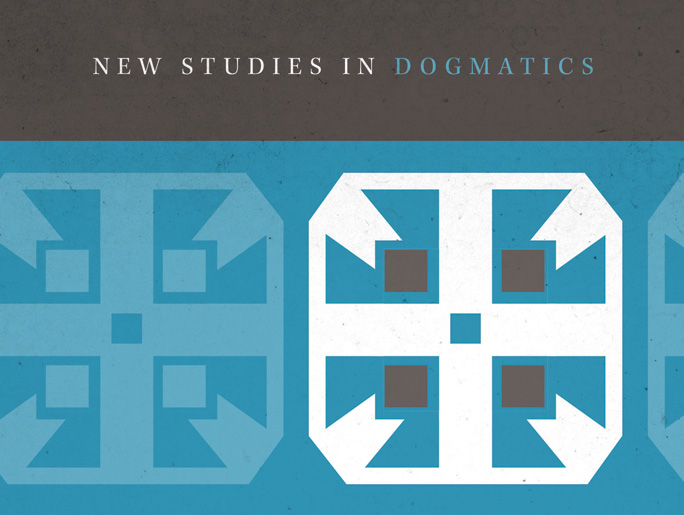One of the greatest things a pastor can do is read books that stretch his soul. These books may be outside his ordinary field of interest or they may be more academically rigorous than what he usually reads in theology. Such reading gives the soul godly flexibility and knowledgeable capability.
Among the Common Places
To this end I’ve found it helpful to identify a few series of books worth serious investment—of time and money. Last week I came across a new series from Zondervan that looks fantastic, “New Studies in Dogmatics.” The editorial team of Michael Allen and Scott Swain say,
New Studies in Dogmatics follows in the tradition of G. C. Berkouwer’s classic series, Studies in Dogmatics, in seeking to offer concise, focused treatments of major topics in dogmatic theology that fill the gap between introductory theology textbooks and advanced theological monographs. Dogmatic theology, as understood by editors and contributors to the series, is a conceptual representation of scriptural teaching about God and all things in relation to God. The source of dogmatics is Holy Scripture, its scope is the summing up of all things in Jesus Christ, its setting is the communion of the saints, and its end is the conversion, consolation, and instruction of creaturely wayfarers in the knowledge and love of the triune God until that knowledge and love is consummated in the beatific vision.
The series wagers that the way forward in constructive theology lies in a program of renewal through retrieval. This wager follows upon the judgment that much modern theology exhibits “a stubborn tendency to grow not higher but to the side,” to borrow Alexander Solzhenitsyn’s words from another context. Though modern theology continues to grow in a number of areas of technical expertise and interdisciplinary facility (especially in both the exegetical and historical domains), this growth too often displays a sideways drift rather than an upward progression in relation to theology’s subject matter, scope, and source, and in fulfilling theology’s end. We believe the path toward theological renewal in such a situation lies in drawing more deeply upon the resources of Holy Scripture in conversation with the church’s most trusted teachers (ancient, medieval, and modern) who have sought to fathom Christ’s unsearchable riches. In keeping with this belief, authors from a broad evangelical constituency will seek in this series to retrieve the riches of Scripture and tradition for constructive dogmatics. The purpose of retrieval is neither simple repetition of past theologians nor repristination of an earlier phase in church history; Christianity at any rate has no golden age east of Eden and short of the kingdom of God. Properly understood, retrieval is an inclusive and enlarging venture, a matter of tapping into a vital root and, in some cases, of relearning a lost grammar of theological discourse, all for the sake of equipping the church in its contemporary vocation to think and speak faithfully and fruitfully about God and God’s works.
While the specific emphases of individual volumes will vary, each volume will display (1) awareness of the “state of the question” pertaining to the doctrine under discussion, (2) attention to the patterns of biblical reasoning (exegetical, biblical-theological, etc.) from which the doctrine emerges, 3) engagement with relevant ecclesiastical statements of the doctrine (creedal, conciliar, confessional) as well as leading theologians of the church, and (4) appreciation of the doctrine’s location within the larger system of theology as well as its contribution to Christian piety and practice.
Our prayer is that, by drawing upon the best resources of the past and with an awareness of both perennial and proximate challenges to Christian thought and practice in the present, New Studies in Dogmatics will contribute to a flourishing theological culture in the church today. Soli Deo Gloria.
Forthcoming Volumes
- Holy Scripture: Donald Wood (University of Aberdeen)
- Triune God: Fred Sanders (Biola University)
- Divine Names: Scott R. Swain (Reformed Theological Seminary)
- Election: Oliver D. Crisp (Fuller Theological Seminary)
- Creation: Marguerite Shuster (Fuller Theological Seminary)
- Providence: Kevin J. Vanhoozer (Trinity Evangelical Divinity School)
- Humanity: Matt Jenson (Biola University)
- Christology: Daniel J. Treier (Wheaton College)
- Redemption: Henri Blocher (Faculté Libre de Théologie Ėvangélique)
- Justification: Michael Horton (Westminster Seminary California)
- Sanctification: Michael Allen (Reformed Theological Seminary)
- Holy Spirit: Christopher R. J. Holmes (University of Otago)
- Sacraments: J. Todd Billings (Western Theological Seminary)
- Eschatology: Ivor J. Davidson (University of St. Andrews)
- Prayer: Katherine Sonderegger (Virginia Theological Seminary)
- Christian Life: Kelly M. Kapic (Covenant College)

